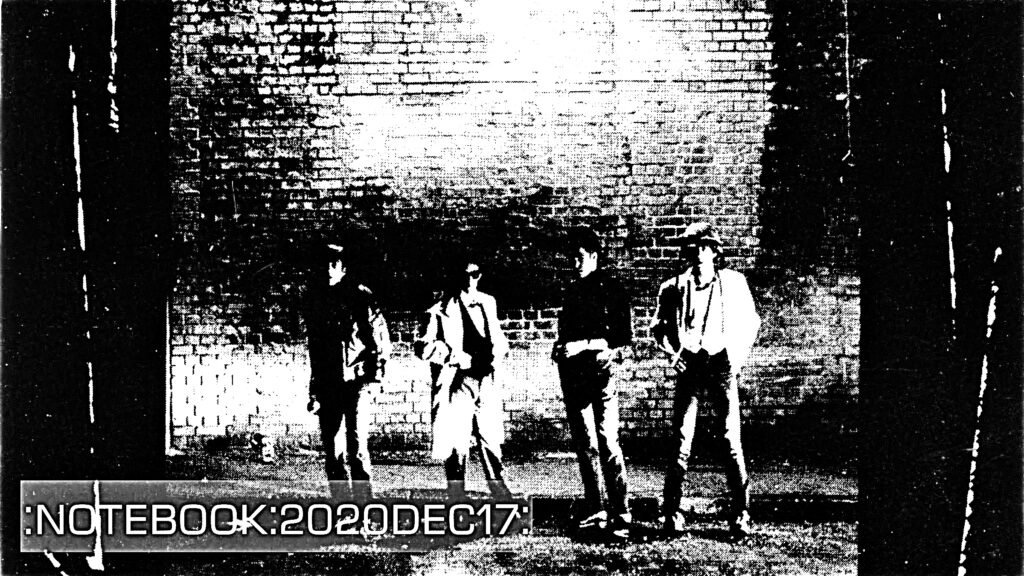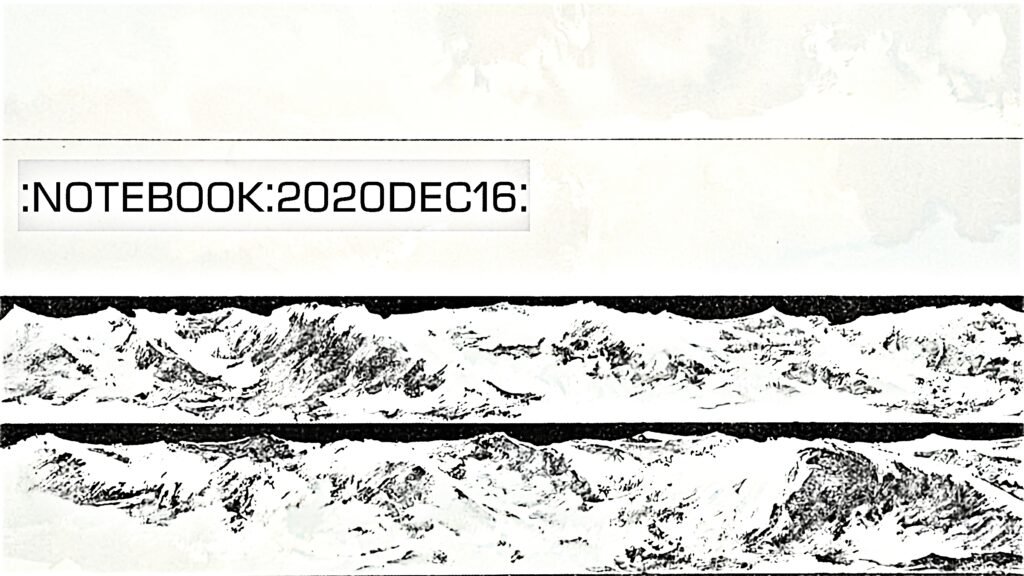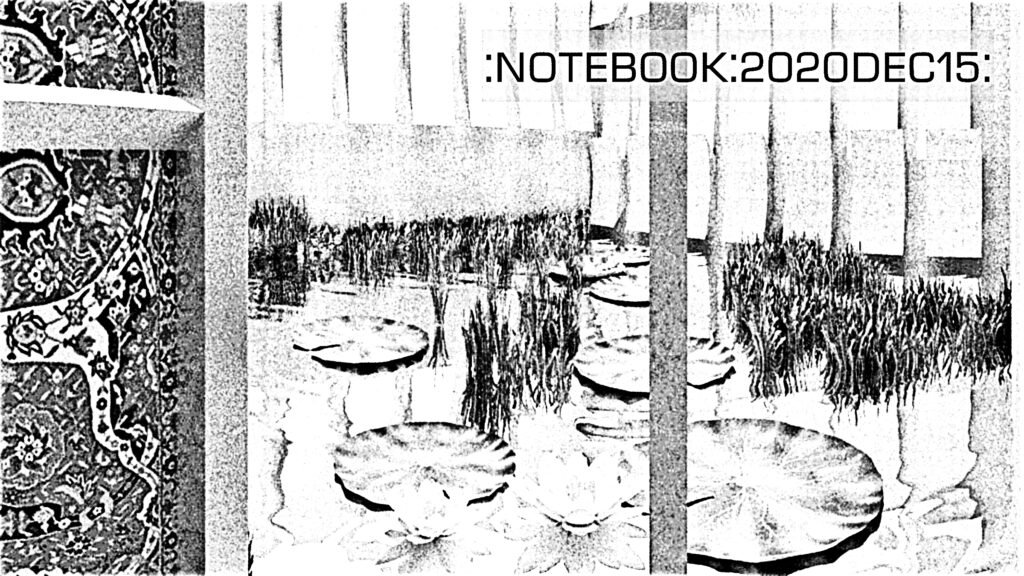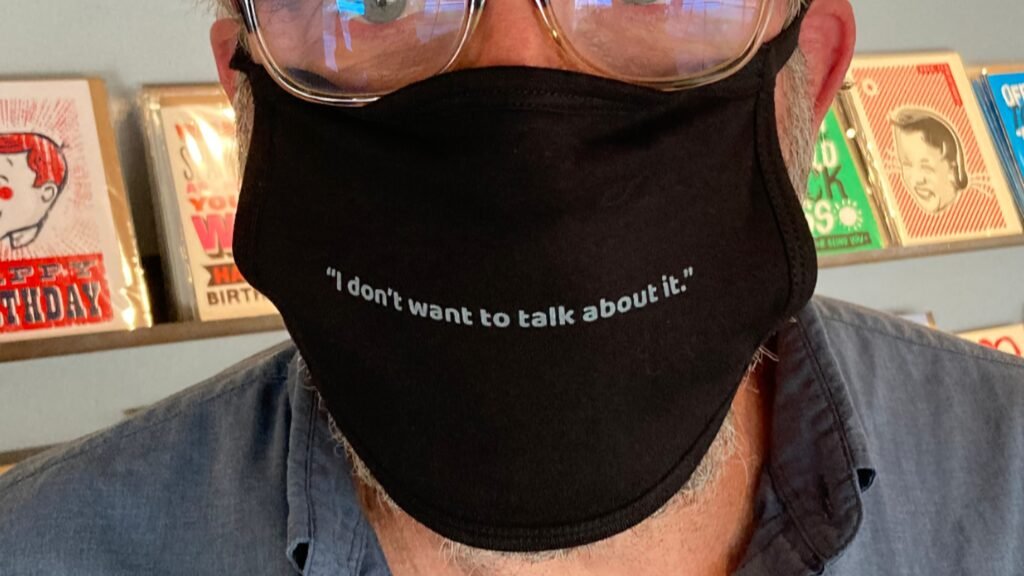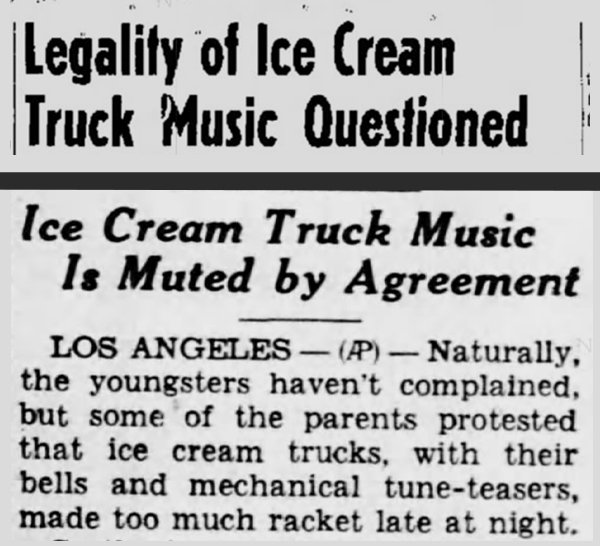
Listening After Months in Lockdown → In The Quietus, Daniel Dylan Wray (who claims to listen to five new albums a day) feels that 2020 deadened music’s healing power for him. As the months (and pandemic) dragged on, music only added to the deluge of information (“Pressing play sometimes felt like opening up Twitter …”), and silence was often preferable. Though Daniel still experienced euphoric music moments, a lot of music (or the act of listening to it) felt “draped in sadness.”
Daniel has a theory. His 2020 listening experiences are happening in a singular space — the same place where he’s locked down, living monotonous days, working from home, endlessly worrying. He’s not bonding with music in grungy nightclubs or record shops, or discovering new tunes with friends, or equating albums to time spent on road trips or in unfamiliar cities. Daniel explains:
The process of discovering and experiencing music is intrinsically linked to a sense of place. We all have indelible memories – from the profound to the prosaic – attached to where we were during a musical epiphany or awakening. This year that process has been hacked down to nothing more than sitting in front of a computer screen at home. … Music is a multi-sensory experience, from the sweat and pulse of a club to the stench of stagnant gig venue carpets, and from rifling through fusty charity shop records to perfectly programmed light shows that dazzle the eye as music tickles the ear and chugging smoke machines engulf you. 2020 has robbed music of these other senses.
He has a point. I do equate many of my favorite songs and albums with events, people, or places. And I don’t go out as much as I used to (even before COVID-times), which might be why I don’t have too many current songs with strong memetic connective tissue.
Music critic Ann Powers writes about similar feelings in her moving new essay Diary of a Fugue Year. Like Daniel, she refers to music as another layer of information to digest. But she also finds that her mindset toward music has transformed after months of lockdown, flavoring the act of listening with a strange intimacy:
Music makes me yearn for what feels lost: a whisper pushing breath onto my neck, a voice singing loud into a crowd yelling back at it. In my solitude, though, recordings become a lifeline. Spending time with music has never felt more private, a way of both sheltering from and mediating the noise from outside. At the same time, the sound always takes me somewhere; it’s often the only way I hear a stranger’s voice on any given day. See what I’m getting at? Nothing’s got just one meaning. In a year crowded with contradictions, music’s way of enhancing emotion can feel clarifying, or it can overwhelm. Like every other form of information, music is reaching people through static-filled channels, distorted, muffled, feeding back.
We know many new practices will linger after the pandemic: working from home, live-streamed concerts, and telemedicine, to name a few. We might also listen differently, our ears heightened to receive the emotion of the moment. At home, songs will continue to sound much more personal than before COVID-times. And in the wild, music discovery becomes a visceral experience like few others.
——————
CBGB Virtual Tour → Experience the grime, grit, and magnificence of CBGB & OMFUG just before shutting its doors in 2006. I was lucky to visit the club in 1991 (Monster Magnet were playing — this was during CMJ Music Marathon), but I could only handle about five minutes as the place was so hot, tiny, and packed. I had a better time next door at the Gallery, where I watched Jad Fair stomp his feet and sing songs a cappella.1He mic’ed the floor so his foot stomps would be amplified. The bemused sound guy spent 10 minutes moving microphones around until Jad was satisfied with the sound of his stomps. This virtual tour is a trip, though. Don’t miss out on the infamous bathrooms. And Unsane were quite strategic with their band stickers, weren’t they? (h/t Joe Livingston)
——————
Matthew Cardinal – Asterisms → If calming those pandemic nerves is the aim, then Asterisms is the game. Matthew Cardinal, a member of the Edmonton band nêhiyawak (described in the press release as ‘moccasingaze’), pleasingly layers tones and washes of sound throughout his solo debut’s enchanting 43 minutes. There are some things to decipher here — the song titles are dates without years, and it’s not clear if “Dec 31st” and “Jan 8th” are yet to happen or already passed. Maybe these are the days the tracks were recorded, or when best to listen. And the album’s title either references typography or astronomy, both realms where the term “asterism” exists. This fuzziness reflects the music, lost somewhere between past and future, between rigid text-space and intangible star fields. There are hints of melodies that fade in and out of each other, and occasionally a Schulze-esque synth sound will bubble up from the haze. And with nearly half the tracks clocking in at under three minutes, these aren’t elongated, drifty drones, but the shorties also don’t come off as unfinished snapshots. There’s enough variety here to imbue a thoughtful motion to the album, as recalling past days in our lives reveals different colors and fading experiences. Most importantly, Asterisms is a comforting listen, and I happily give in to its spell. Matthew Cardinal has confidently earned his gold star among the busy field of 2020’s ambient exporters. (P.S. Here’s a kaleidoscopic video for “Dec 4th.”)
